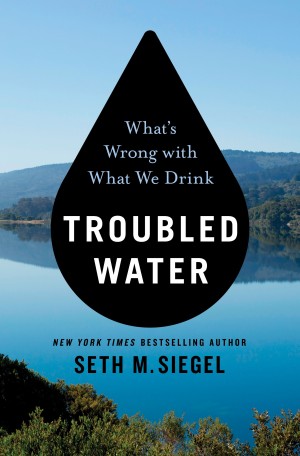This smart, engaging, and extremely feel-good book tells one of the stories that best illustrates how Israel consistently turns crises into opportunities and challenges into victories.
Long before statehood, the nascent country’s leaders and planners had realized that population and economic growth required an efficient and secure infrastructure, and that a dependable, affordable water supply was at the heart of it all, necessitating both scientific and managerial innovation. Even as Israel grew to be more and more exemplary of booming private capitalism, government monopoly would be the best way to manage water.
And so it has proven to be.
The invention of and commitment to drip irrigation — a technique that put the water only where it was needed, when it was needed, and in the precise quantity that was needed — revolutionized agriculture, first in Israel and later throughout the world. The commitment to extracting fresh water from seawater also contributed not only to Israel’s water independence, but to the improbable condition of water abundance as well — similarly accomplished by building the capability of turning sewage into a major component of an unparalleled national water system. And developing a water-sensitive culture proved every bit as important as the technologies implemented. (The government of Israel effectively encourages citizens not to waste a drop — and to make sure there are no leaks in their distribution systems — by charging users at least the actual cost for water.)
Seth M. Siegel explores how Israel’s neighbors treat their water sufficiency, noting that the situation is disastrous and without improvement yet. He sees Israel’s leadership in this field as a possible way of engaging the countries surrounding it in relationships of mutual benefit that might lead to peace. He also surveys water conditions worldwide, detailing Israel’s leadership across the globe. Water conservation know-how, systems management, and technological innovation have created a major and lucrative Israeli industry internationally.
Siegel’s accessible handling of technological issues, his focus on key individuals inside and outside of government, and his boundless enthusiasm for Israel’s accomplishments and international leadership make Let There Be Water a highly appealing read.
Philip K. Jason is professor emeritus of English at the United States Naval Academy. A former editor of Poet Lore, he is the author or editor of twenty books, including Acts and Shadows: The Vietnam War in American Literary Culture and Don’t Wave Goodbye: The Children’s Flight from Nazi Persecution to American Freedom.





